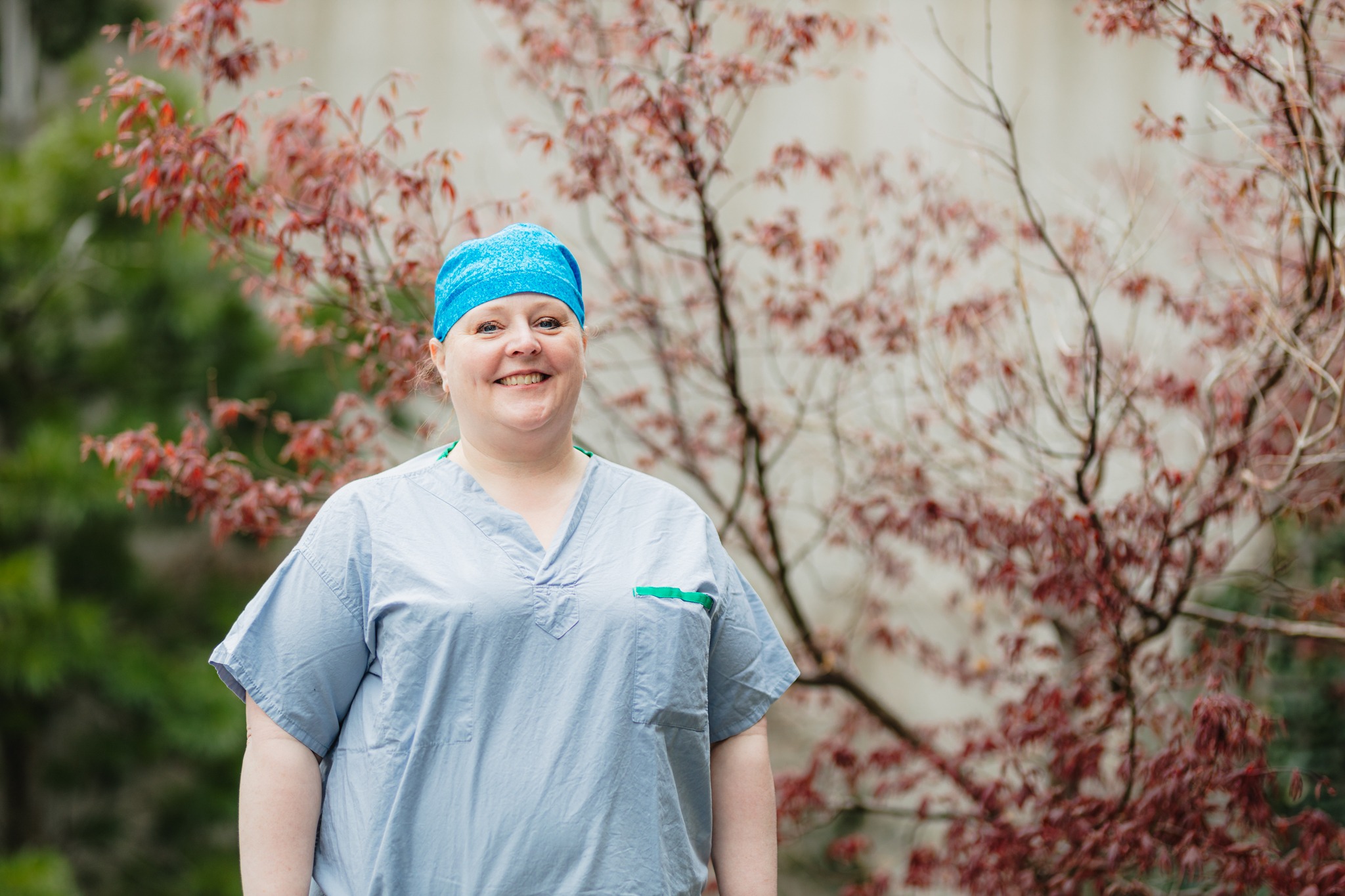
Helping our littlest patients breathe
There is no such thing as a typical day in the Neonatal Intensive Care Unit (NICU) at McMaster Children’s Hospital (MCH). Why? Because this unit is for infants who are born requiring critical care, many of whom are born prematurely. The care of a premature or critically ill newborn can change rapidly and unpredictably requiring careful monitoring and a close attention to detail.
It takes a village to care for these babies – coordinating the necessary care for survival and then optimizing their growth and development until they’re ready to be transferred or sent home. One of those villagers is Karey Nelson, a Registered Respiratory Therapist.

Karey Nelson, Registered Respiratory Therapist
“It’s amazing to see just how resilient a baby can be. Whether they’ll need continued care throughout their lives or not, they learn to adapt,” says Nelson.
Respiratory therapists in the NICU
Respiratory therapists assess, care for and monitor patients who have difficulty breathing to ensure they get the support they need. This includes inserting breathing tubes, managing ventilators and breathing masks, and monitoring medication.
When a baby is born at 33 weeks gestation or earlier, their lungs aren’t fully developed so some form of breathing support is often needed. This means respiratory therapists are a critical part of the NICU team and the ongoing care for these infants.
The NICU at MCH has 72 beds and provides care for approximately 1,500 babies every year. Six respiratory therapists work on every shift providing care for these infants. They’re also part of the NICU admit team and attend deliveries when there’s a possibility that breathing support will be required at birth.
“While no day is the same for me, I work at having uneventful days for my patients.”
Responding to change
Nelson’s day starts with reviewing the status of each of the patients in her care with the respiratory therapist finishing the previous shift. This is followed by “rounds” where she checks on each patient. She’s assessing their vital signs, listening to their breathing, checking blood work and x-rays, plus ensuring that the breathing tube or oxygen mask is positioned correctly. These rounds occur every four hours.
Afterwards, she is part of the care team meeting to review each patient, discuss changes in status and care, and set a plan for the day. These meetings involve doctors, nurses, respiratory therapists, dietitians and pharmacists.
“Babies are constantly changing and premature babies are very sensitive to even the slightest change,” says Nelson. “As a team we discuss how they’re responding and what we need to do to make things easier for them.”
The result of that meeting can mean adjustments in medication, oxygen or pressure levels, ventilator support or equipment. Nelson’s next sets of rounds are important to see how the babies are responding. This means she may need to make adjustments to ensure her tiny patients are breathing comfortably.
One size doesn’t fit all
“Patients can be in the NICU for days, weeks or months. They often weigh only a couple of pounds or less when they’re born, so they’re growing and developing while in our care. This means we also have to change their respiratory support as they grow,” says Nelson.
To fit these tiny but growing patients, breathing tubes and face masks come in multiple sizes. They’re even small enough to fit micro preemie babies who weigh less than a pound at birth.

Premature babies like Eli will spend anywhere from days to weeks in the NICU so they can continue to grow and develop.
Expect the unexpected
Despite thorough monitoring, a sudden change can occur that triggers an alarm on the ventilator or oxygen monitor. This could be as simple as a baby having the hiccups, or more complicated like the tape holding the breathing tube coming loose when a baby moved. However, it could also signal a spike in heart rate or temperature, or a change in oxygen levels that needs to be addressed immediately.
An ever-changing environment may keep Nelson on her toes, but it’s what she enjoys about the job.
“While no day is the same for me, I work at having uneventful days for my patients. It means they’re breathing, growing and developing well,” she says. “What makes it all worthwhile is the day a patient can breathe on their own and no longer needs me.”
The Canadian Society of Respiratory Therapists identifies the last week in October as Respiratory Therapy Week in Canada to celebrate the respiratory therapy profession and the outstanding dedication and passion of respiratory therapists.


